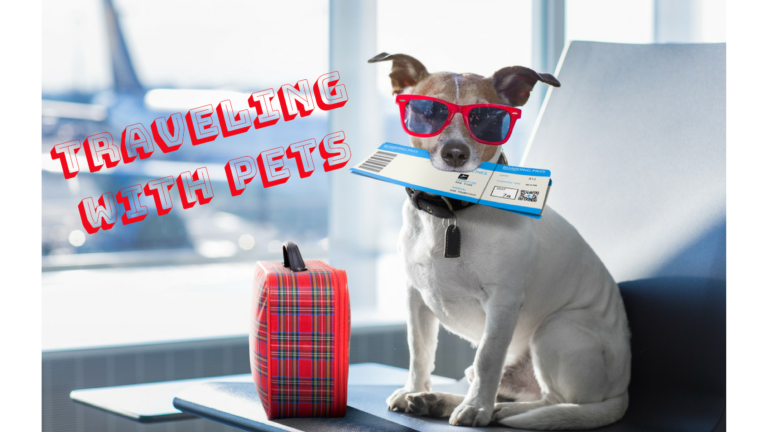It’s the season for spending time with those you care for most, including your pets. If you’re traveling this season, here’s some tips on traveling with your furry family members.
1. Ask your hosts if they mind that you bring your pets with you. There could be others visiting and/or staying that have pet allergies. It’s best to ask ahead of time to be courteous. If you are staying in a hotel, call the hotel directly to discuss their pet policy. Talk to a hotel employee and explain the size, number and type of pet you are bringing so there are no surprises at check in. Visit GoPetFriendly.com for lodging options.
2. Take some shorter drives as a trial run to see how your pet responds. Pets can get car sick too. Retrain your pet in a pet carrier, pet seat belt, pet car seat or travel crate. Pet’s wondering around and occupying the front seat are a distraction and they will become injured in the event of an accident.
3. Consult your veterinarian before the trip, especially if your pet hasn’t traveled before or if you have any health concerns. Make sure your pet is up-to-date on vaccinations. If you’re driving out of state, you’ll want to obtain a Certificate of Veterinary Inspection (CVI), which USDA-accredited veterinarians can provide. If your dog is traveling, check that it has received an appropriate tapeworm treatment.
4. Check airline pet restrictions. Most airlines tend to restrict bulldogs, Boston terriers, boxers, chows, and pugs, as they are brachycephalic (short-headed, or snub nosed) and thus more susceptible to changes in temperature and humidity.
5. Properly ID your Pet. Never travel with pets unless they have had microchips implanted and are wearing external tags that include your up-to-date contact information.
6. Pack for your pet. Bring your pet’s normal food and treats and litter for cats as well as a familiar blanket and/or toy. Keep a gallon of cold water on hand to ensure your pet stays hydrated during the trip. Stop every 2-3 hours for your pet to use the restroom and get some exercise. The American Veterinary Medical Association recommends you take your pet’s medical records and medications with you, including any preventives (heartworm, flea and tick) that might be due while you’re traveling. Should there be an emergency and you need a veterinarian, this site allows you to search for a veterinary practice by zip code or city/state. Add a second tag to your pet’s collar that includes the address and phone number of where you’ll be staying during your trip.
Your hosts may also appreciate if you brought along the following: A bed sheet from home you can throw on the guest bed or hotel bed so you don’t leave behind pet hair; dog waste bags, and a small bottle of urine eliminator and spot remover.
Have you traveled a distance by car or plane with your pets? What tips would you share?
– S.O.



